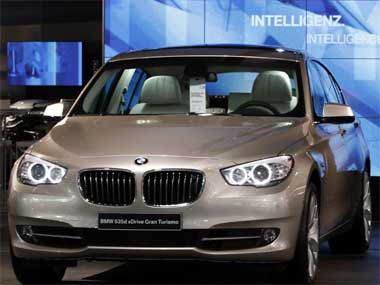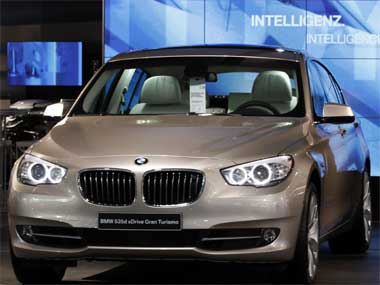New Delhi: It is well known that the Indian consumer is a stickler for mileage- this trait being one that transcends geographical boundaries. There’s a passing joke in America’s Indian diaspora circles, especially first and second generation immigrants which goes, thus: If the car is a Honda, chances are that it is owned by an Indian.
A Maruti ad which shows a NASA scientist explaining to an engaged audience what its spaceship - one of its ‘most ambitious project’ - can do, also drives home this point. At the end of his presentation the scientist opens the floor to questions, which is when an Indian present raises his had to ask: “How much (mileage) does she give?”
While Maruti, India’s largest car manufacturer, was most certainly portraying its target audience - the Indian middle class - in the advertisement, it would not be incorrect to say that the love for diesel has now spawned across consumers irrespective of their social and economic status.
[caption id=“attachment_589340” align=“alignleft” width=“380”]
 Analysts say the trend for diesel cars has also found its way into the luxury segment with luxury car manufacturers like BMW, Audi and Mercedes selling more diesel cars than petrol versions of the same models. Reuters[/caption]
Analysts say the trend for diesel cars has also found its way into the luxury segment with luxury car manufacturers like BMW, Audi and Mercedes selling more diesel cars than petrol versions of the same models. Reuters[/caption]
Analysts say the trend for diesel cars has also found its way into the luxury segment with luxury car manufacturers like BMW, Audi and Mercedes selling more diesel cars than petrol versions of the same models. While one would logically think that fuel price and mileage would be the least of the concerns for buyers in this segment, its cost effectiveness is not lost on them, Surjit Arora, auto research analyst, Prabhudas Lilladhar India (PL India) told Firstpost.
“Even as the overall market has totally shifted towards diesel, the luxury car segment has also tipped itself towards diesel and premium car makers like BMW and Mercedes have ramped up their capacity for the same,” Arora said.
Impact Shorts
More ShortsThe cost advantage in terms of both, fuel mileage and a marginal upward difference compared to the cost of a petrol car, have seen more buyers of this segment taking to diesel-run cars.
While the reason for them bucking this trend is also to do with the prevailing overall market trend of most players - new and existing - setting up capacities in diesel, the price difference in diesel and petrol is a major incentive.
“People who go forluxury cars are mostly categorized as the super rich, and it normally doesn’t matter how much they pay for fuel. But, given the present 40%-45% price differential between the two fuels, the running and maintenance costs of the car come down drastically,” Arora said. “When one can get a car with similar features at better overall costs, people will tend to buy what makes more sense for them - which at present is a diesel car versus a petrol car,” he added.
A financial analyst, who deals with companies and brands- some being the auto sector, agrees with Arora. The analyst who did not want to be named, said that the cost advantage and also to some extent the perception of adulterated fuel, drives people to favoring diesel.
“The perceived impression is that petrol as a fuel is more open for adulteration than diesel. If I am a rich farmer owning a vehicle, then I would prefer a diesel car versus a petrol one because I know I’ll get more value for money from my diesel than from petrol – which may be of poor quality anyway,” he said.
A BMW dealership in Delhi also confirms this trend. The BMW Studio located in Central Delhi sells around 8 cars per month - each costing anything between Rs 36 lakh and Rs 60 lakh (on road) – and most of them are ones that run on diesel, said a salesgirl.
“We are not the busiest dealership in the Delhi NCR region but we still sell about eight cars a month. And I would say 80 percent of those are diesel models,” she said.
BMW, Audi and Mercedes did not respond to queries for the exact number of diesel units they sold in 2012. However, a BMW spokesperson confirmed that the North India region was where they sold most cars.
As premium luxury car manufacturers make inroads into India’s auto market - BMW sold 9,375 units in the calendar year 2012, topping the luxury car market for the 4dourth time this year, even as its competitor, Audi, sold 9,003 units - they have latched onto the prevailing trend of manufacturing diesel cars.
Arora said that the continuation of this trend is incumbent on the difference between diesel and petrol prices and predicted that if this difference closes in by even Rs 5-8, the auto market can see a shift back to petrol cars.
“Unless and until this is corrected, diesel will continue to be in demand - especially since most manufacturers have already or are in the process of building diesel capacity,” Arora said.
)